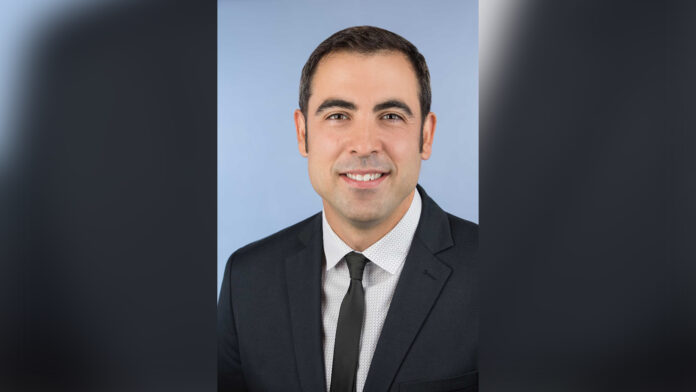A recipient of the Edwin Boldrey Award, Dr. Ignacio Saez, is recognized by the San Francisco Neurological Society
For many, decision-making is given little to no thought on a day-by-day basis. However, one faculty member in the UC Davis Department of Neurological Surgery did not overlook what often seems to be subtle and instinctive to the human mind—the idea that decision-making is governed by neurological processes that can be observed and even altered.
Dr. Ignacio Saez, an assistant professor at the Department of Neurological Surgery studying patients with implanted electrodes as part of their clinical treatment for specific neurological conditions, recently received the Edwin Boldrey Award for his impactful research on the essential cognitive function of decision-making.
“The main focus of my lab is the study of the neural basis of decision-making,” Saez said via email. “In other words, what activity patterns in your brain lead you to make decisions, from the trivial (what plans you’re making for lunch) to the transcendental (i.e. career and family choices). The awarded project focuses on brain oscillations, relatively slow waves of electrical activity in a deep part of our brain, the orbitofrontal cortex.”
His findings have tremendous implications in guiding future clinical research on relieving symptoms of neurological conditions regarding impaired decision-making.
“We found that different patterns of oscillations occur when patients experience a loss versus a win in a gambling game,” Saez said. “This is the first observation of the involvement of these deep neural oscillations in decision-making, which we speculate may underlie behavioral adaptations (for example, changes of strategy following a bad outcome) or memory effects (for example, remembering the choices that led to a good outcome).”
Saez acknowledged that his work would not have been possible without close collaboration with fellow colleagues and physicians. Dr. Kia Shahlaie, a professor in the Department of Neurological Surgery practicing cranial surgery and conducting research at the UC Davis Center for Neuroscience, was one of many physicians who had the chance to work closely with Saez inside and outside the operating room.
“As a colleague, he’s very thoughtful, intelligent, very humble, probably more than he should be because he is very accomplished,” Shahlaie said. “He likes to spend time thinking alternative hypotheses and ideas. He’s a true academician and scientist, very open-minded and wants to find the truth and collaborate and work with others as much as possible.”
Dr. Gene Gurkoff, an associate professor in the Department of Neurological Surgery who also conducts research with models of traumatic brain surgery and epilepsy at the UC Davis Center for Neuroscience, recalled his first encounter with Saez.
“One of the things that stood out to me about Dr. Saez is his leadership capabilities,” Gurkoff said. “The kind of research he does involves working with basic neuroscientists, including graduate students, post docs and undergraduates. At the same time, he also has to work with the technicians that run the lab at the hospital as well as the physicians. This is a big group of very diverse personalities, and it really takes a certain kind of person to bring everybody together into one room, speaking the same language so he can do these very complex experiments.”
Saez hopes that this award will help him further build connections and fuel many others with a passion for basic science research.
“It is always an honor to be recognized by a professional society, especially one to which so many talented clinicians and researchers belong,” Saez said. “San Francisco and the greater Bay Area contain some of the top neurological surgery departments in the world, and being recognized in that context is really humbling but also energizing. As a junior faculty member, I hope the award will get the word out there about the science we do in the lab and facilitate interaction with colleagues from other institutions.”
Despite the immense recognition that the award has brought to Saez’s name, his persistent humility and work ethic has illustrated for many other researchers the importance of collaborative research efforts.
“Basic research is essential to refine our understanding of brain function and lay the groundwork for future treatments, but it requires a special type of support in a clinical department,” Saez said. “I think this award is further proof that team-based research efforts, and cross-pollination between clinical and basic research, is fundamental in today’s research environments. I hope it serves as a bit of inspiration for clinical departments and basic researchers that training young researchers and physicians that are comfortable in both worlds will be able to make great contributions to both basic science and patient care.”Written by: Brandon Nguyen – science@theaggie.org




